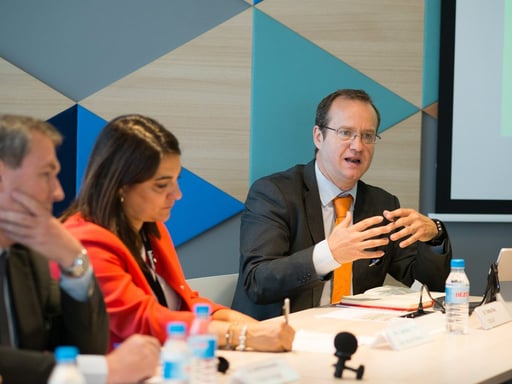"Big Data Saves Lives" saw presentations and discussions about how we can use Big Data and technology to fight energy poverty and help people in need.
On June 7, Microsoft and Bismart held the jointly organized “Big Data Saves Lives” event in Barcelona, Spain. The event was attended by professionals who work in organizations that provide basic services and social assistance. Speakers discussed energy poverty and how new technology and Big Data can improve the lives of people at risk of poverty and social exclusion.
The speakers agreed on the importance of using new technologies and Big Data to improve social services and fight energy poverty. Pilar Rodríguez, deputy director of the Association for Well-Being and Development, said that Big Data is a bridge to help organizations provide help more efficiently to people in need.

During the event, attendees demonstrated a deep commitment to improving quality of life for people at risk of social exclusion and those who are suffering from energy poverty. During the round table discussions, one key issue that came up was the need to standardize current databases to improve efficiency.
Emili Rousaud, managing director of Factor Energía, discussed the need to provide tools to deal with data so it can be translated into knowledge, and thus use it to help people in need. Along the same lines, Albert Isern, CEO of Bismart, showed how Big Data gives us the ability to reach those people who need social services but who don’t actively request assistance.
According to Mercè Civit, coordinator of the Commission of Basic Social Services of the Official School of Social Work of Catalonia, technology gives us the opportunity to work directly with families in need and empower them to support themselves, rather than relying on charity.
Furthermore, data can help detect poverty situations, rather than organizations having to wait until people at risk contact social services (which, as Isern pointed out, doesn’t always happen). This means that rather than taking actions to alleviate problems, organizations can now use a preventative approach, which will reduce costs and improve efficiency. This shift in approach will allow for better insights for how to allocate budgets, and better management of resources overall.

Technology gives organizations the ability to act immediately and to constantly monitor how situations are evolving. These important elements can help support organizations to improve people's lives.
Though we still have a way to go, it’s clear that new technologies play a critical role in fighting poverty. It’s essential to invest in these types of resources to help many people in need and truly save lives.
Thank you to all our attendees for sharing their insights at "Big Data Saves Lives." Are you interested in continuing the conversation about how we can use technology to save lives? Follow our page on LinkedIn.



